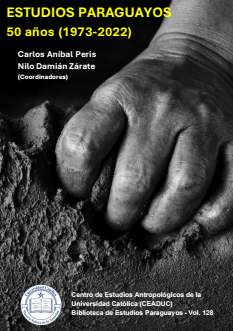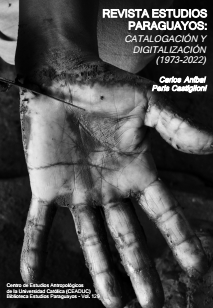Necessary innovations in the initial teacher training model in Paraguay. Nuclei for analysis and discussion
DOI:
https://doi.org/10.47133/121Keywords:
educational transformation, professional profile, training center, 21st century pedagogies, training technologiesAbstract
This analysis leads to identify some necessary innovations in the initial teacher training system. To this end, it takes as its starting points the data of the learning measurements, the evaluations of the Reform and the vision of development of the country, and from them, proposes some lines of action for the Transformation, focused on the profile of the trainers and trained, the conditions of the training center, the pedagogies that support the training curriculum and the use of technologies. The methodology followed starts from the documentary review on the course of action of the Ministry of Education and Sciences (MEC) and submits it to a hermeneutic process to recognize some decisions that may be relevant to educational improvement. In conclusion, the New Teacher Training requires recognition as an instance of higher university education, so it must select trainers and graduates with a profile for research, extension, and innovation, offer better conditions for learning, with a curriculum appropriate to the challenges of the century. XXI and with opportunities for technological experimentation.
Downloads
References
Bächler, R. 2017. Endogamia educativa: las representaciones implícitas de los docentes como factor de reproducción de prácticas pedagógicas en la escuela. Synergies Chili, (13), 81-94.
Barber, M., y Mourshed, M. 2007. How the World’s Best-Performing School Systems Come Out On Top.
Bruns, B., y Luque, J. 2015. Profesores excelentes. Cómo mejorar el aprendizaje en América Latina y el Caribe, doi:10.1596/978-1-4648-0151-8, Washington, DC: Banco Mundial.
Carbonell Sebarroja, J. 2015. Pedagogías del siglo XXI: alternativas para la innovación educativa. Barcelona: Ediciones Octaedro.
Consejo Nacional de Educación y Ciencias. 2002. Estudio Evaluativo de la Reforma Educativa.
Delors, J. 1996. La educación encierra un tesoro. Madrid: Santillana Ediciones UNESCO.
Elías, R., Molinas, M., y Misiego, P. 2013. Informe de Progreso Educativo Paraguay. El desafío es la equidad. Asunción: Preal, Instituto Desarrollo.
Elías, R. 2014. La reforma educativa paraguaya: Base conceptual, políticas, planes y programas. Asunción: Instituto Desarrollo
Eslava, C. 2017. Entorno y Educación: Un Tejido Invisible. Un Viaje de la Ciudad al Aula. Revista Internacional de Educación para la Justicia Social (RIEJS), 6(1), 157-179
Fernández Enguita, M. 2018. Más escuela y menos aula. La innovación en la perspectiva de un cambio de época. Madrid, Morata.
Horta, H., y Yudkevich, M. 2016. The role of academic inbreeding in developing higher education systems: Challenges and possible solutions. Technological Forecasting and Social Change. 113: 363–372.
Imbernón, F. 2017. Ser docente en una sociedad compleja: la difícil tarea de enseñar. Barcelona: Grao.
Instituto Nacional de Tecnologías Educativas y de Formación del Profesorado INTEF. 2016. Resumen informe competencias para un mundo digital.
Pallarès, M., Bartoll, O., Martín, R. y Fayos, I. 2018. La escuela que llega: tendencias y nuevos enfoques metodológicos. Barcelona: Octaedro.
Reimers, F. 1993. Síntesis. En Harvard Institute for International Development y Centro Paraguayo de Estudios Sociológicos, Análisis del sistema educativo en el Paraguay: sugerencias de política y estrategia para su reforma (pp. 9-37). Asunción: Autores.
Rivarola, D. 2006. Reforma educativa y crisis de la docencia. Asunción: Autor.
Secretaría Técnica de Planificación del Desarrollo Económico y Social, 2014. Plan Nacional de Desarrollo Paraguay 2030. Asunción: Autor
Unesco, Oreal. 2016. Informe de resultados TERCE.
Vaillant, D. 2013. Estado de Arte de la Profesión Docente en Paraguay. Ideas inspiradoras para la elaboración de políticas educativas. Asunción: Banco Mundial.
Downloads
Published
How to Cite
Issue
Section
License
Copyright (c) 2020 Félix Alberto Caballero Alarcón; y Estudios Paraguayos

This work is licensed under a Creative Commons Attribution-NonCommercial 4.0 International License.
















